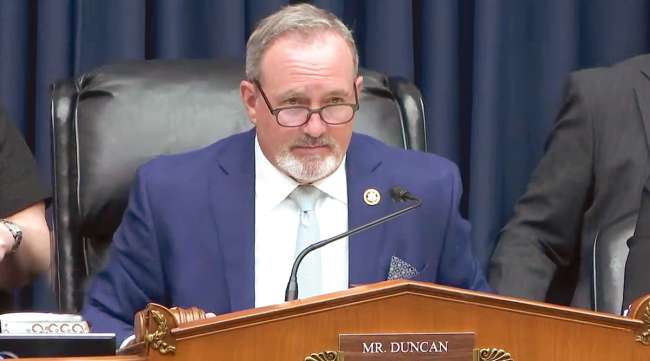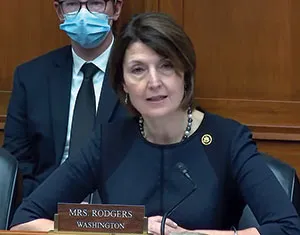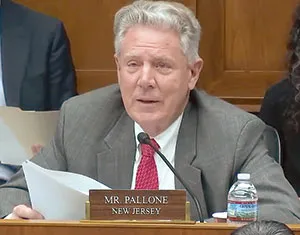Senior Reporter
House Panel Advances Pipeline Bill

[Stay on top of transportation news: Get TTNews in your inbox.]
A five-year update of federal pipeline safety operations was recently approved by a subcommittee in the U.S. House of Representatives.
This month, the Energy, Climate and Grid Security Subcommittee voted 14-10 along party lines to advance the Pipeline Safety, Modernization and Expansion Act amid pushback from Democrats. The bill would reauthorize safety programs at the Pipeline and Hazardous Materials Safety Administration.
“Through hearings on this committee, we have heard warnings from energy reliability experts, grid operators and [Federal Energy Regulatory Commission] commissioners that the lack of pipeline capacity in this country is contributing to reliability issues,” Rep. Jeff Duncan (R-S.C.), subcommittee chairman, said March 6. “Unfortunately, this administration has not taken these warnings seriously and continued efforts to block oil and gas development in the United States.”
Key to the bill is the establishment of a board tasked with overseeing the creation of a voluntary data-sharing system. The system would be used to pursue the promotion of pipeline safety and certain oversight of the agency. The bill also would expand penalties for incidents in which pipelines have been damaged as well as prevent states from blocking certain pipeline operations. The bill would authorize operations each year through fiscal 2028.
“Pipelines all over the country have been delayed and ultimately canceled as result of permitting challenges and lawsuits funded and backed by radical environmental groups,” Duncan said. “My draft legislation addresses this by strengthening penalties for damaging pipelines and incorporating permitting reform centered on safety, modernization and expansion. It improves [pipelines’] safety by updating PHMSA programs to reflect new technologies. It puts an end to ‘gas bans’ by protecting the American people’s right to choose the energy source that fits their needs.”

Rep. Cathy McMorris Rodgers (R-Wash.) says, "To meet growing energy demands, we must modernize and expand our pipeline infrastructure." (House Committee on Energy via YouTube)
Energy and Commerce Committee Chairwoman Cathy McMorris Rodgers (R-Wash.) endorsed the measure. Full committee consideration of the bill has yet to be scheduled. “To meet growing energy demands, we must modernize and expand our pipeline infrastructure,” she said. “The U.S. has been blessed with an abundance of natural resources right under our feet, which we’ve been able to harness as a result of free market principles and an entrepreneurial spirit that’s uniquely American.”
Democrats on the panel, however, united in staunch opposition to the legislation. Committee ranking member Rep. Frank Pallone (D-N.J.), said, “Throughout this Congress, Republicans have shirked their duty to reauthorize the Pipeline and Hazardous Materials Safety Administration’s, or PHMSA’s, pipeline safety responsibilities. They never held an oversight hearing. They never made an effort to sit down and discuss shared priorities. Instead, they simply circulated a partisan draft bill focused more on building pipelines than safety, mere weeks before PHMSA’s authorization expired.”

Rep. Frank Pallone (D-N.J.) says the Republican-crafted bill is more focused on building pipelines than safety. (House Committee on Energy via YouTube)
He added, “Reauthorizing pipeline safety programs and moving a bipartisan bill takes collaboration, communication and good-faith negotiation. None of that has occurred here.”
In January, PHMSA Deputy Administrator Tristan Brown shared agency priorities with the House panel. “PHMSA is aware of congressional efforts to complete a reauthorization of its pipeline safety program. PHMSA has followed with interest … the efforts of both the Energy and Commerce Committee and the Transportation and Infrastructure Committee, particularly the Pipeline Safety, Modernization and Expansion Act of 2023,” he told the committee during a hearing. “As has been mentioned several times throughout this testimony, the anticipated expansion of pipeline infrastructure to transport [carbon dioxide] has made PHMSA’s update of current [carbon dioxide] pipeline regulations a top priority for the agency.”
Last year, the House Transportation and Infrastructure Committee approved the bipartisan Promoting Innovation in Pipeline Efficiency and Safety Act of 2023. Its floor consideration has not been scheduled. According to the agency, a nearly 3 million-mile pipeline transportation system and daily shipments of hazardous materials across various modes of transport are under its jurisdiction.
Want more news? Listen to today's daily briefing below or go here for more info:




